ビエンチャンラオスの魅力的な首都、ビエンチャンは、古代の伝統と現代性が見事に融合した街です。ゆったりとした雰囲気と豊かな文化遺産で知られるビエンチャンには、東南アジアで最も息をのむほど美しい宗教的な場所がいくつかあります。黄金の寺院から夕日に輝く静かな仏塔まで、この街は訪れるすべての人の心を魅了する精神的な旅を提供します。
ビエンチャンへの旅行を計画しているなら、この街の必見の宗教的名所を探索するための究極のガイドをご覧ください。
1. タート・ルアン:ラオスの黄金のシンボル
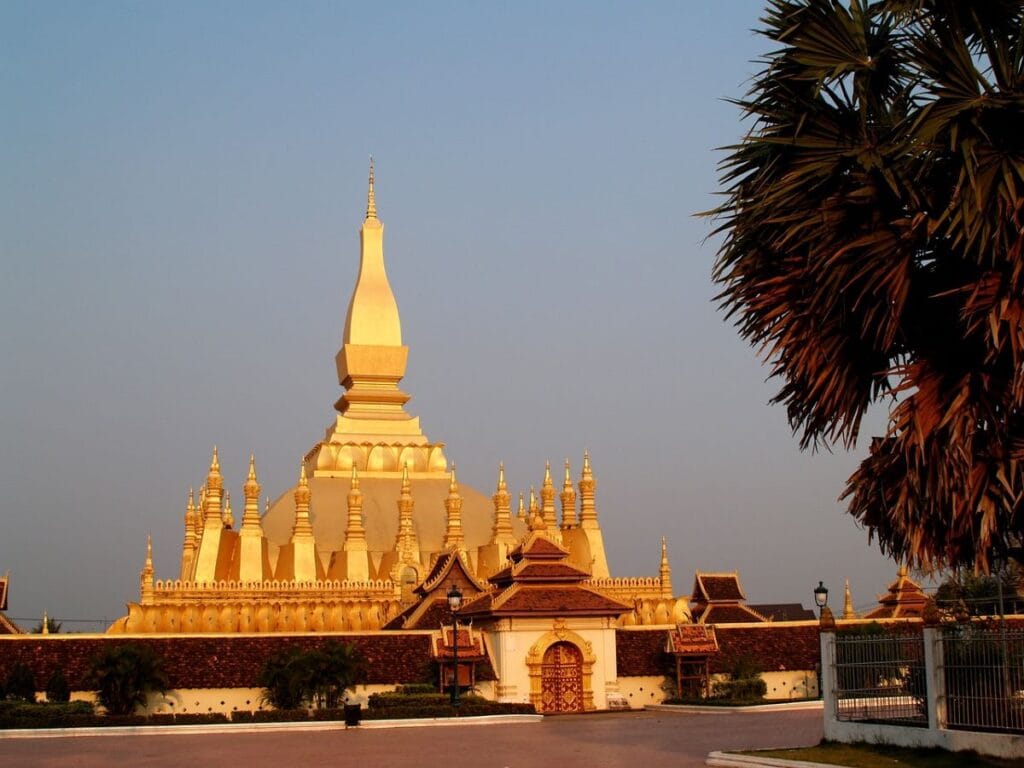
ビエンチャンを訪れるなら、ここを訪れなければ意味がありません。 パー・タート・ルアン、大仏塔。輝く金色に覆われたこの象徴的な建造物は、街のシンボルであるだけでなく、ラオスの国章でもあります。
訪問する理由
- 歴史的意義: タート・ルアンはもともと 3 世紀に建てられ、その後何度か再建されました。現在の形になったのは、セッタティラート王が首都をビエンチャンに移した 1566 年まで遡ります。
- 建築の素晴らしさ: 高さ 45 メートルの仏塔は、小さな仏塔に囲まれており、魅惑的な景観を作り出しています。日の出と日の入りのときに、金色に輝く仏塔は、写真家にとって夢のような場所です。
- 精神的な重要性ラオスで最も神聖な遺跡とされるタート・ルアンには、仏陀の遺骨が納められていると信じられています。
訪問者へのヒント
- 夕方遅くに訪れて、太陽が沈むにつれて仏塔が金色の光に包まれる様子をご覧ください。
- ここは宗教的な場所なので、控えめな服装をしてください。
- 毎年恒例の タート・ルアン祭り 11月は地元の伝統や儀式を体験するのに最適な時期です。
2. ワット・シーサケット:ビエンチャン最古の寺院
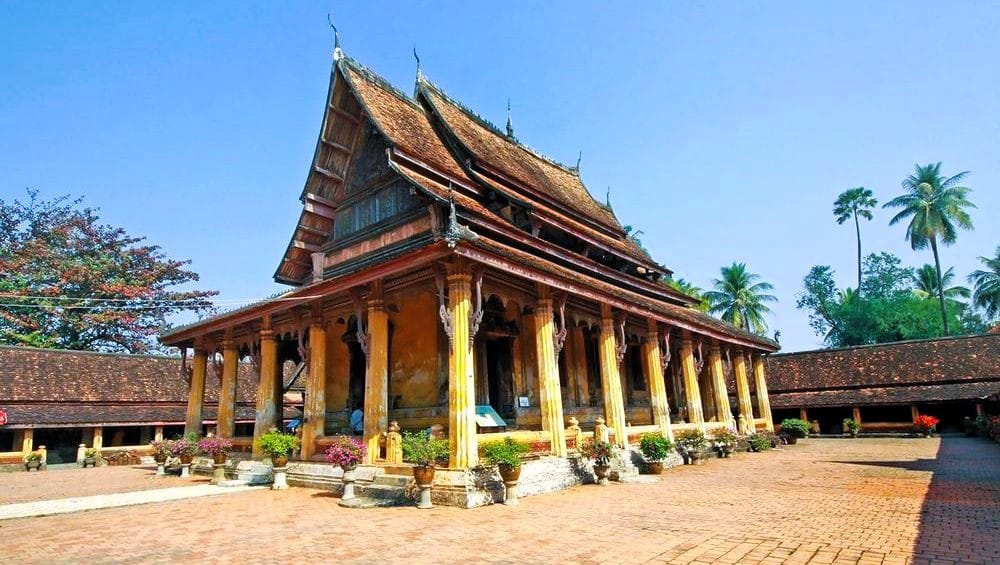
市の中心部に位置し、 ワット・シーサケット 歴史と芸術の宝庫です。1818年に建てられたこの寺院は、ビエンチャンに現存する最古の寺院であり、この街の過去を垣間見ることができます。
訪問する理由
- ユニークなデザインラオスの他の寺院とは異なり、ワット・シーサケットはシャム様式で建てられたため、1820年代のシャム人の侵略を生き延びることができました。
- 仏像: この寺院には、小さな像から実物大の彫刻まで、10,000 体を超える仏像が安置されています。木、石、青銅で作られたこれらの仏像は、回廊の壁に沿った壁龕に展示されています。
- 平和な雰囲気静かな中庭と古代の壁画は、賑やかな街の喧騒から逃れて穏やかなひとときを過ごせる場所です。
訪問者へのヒント
- 早朝に訪れて静かな雰囲気を楽しんでください。
- 寺院内の博物館では遺物や遺物が展示されていますので、ぜひ訪れてみてください。
- 写真撮影は許可されていますが、僧侶や参拝者に対して敬意を持ってください。
3. ワット・ホープラケオ:エメラルド仏の寺院
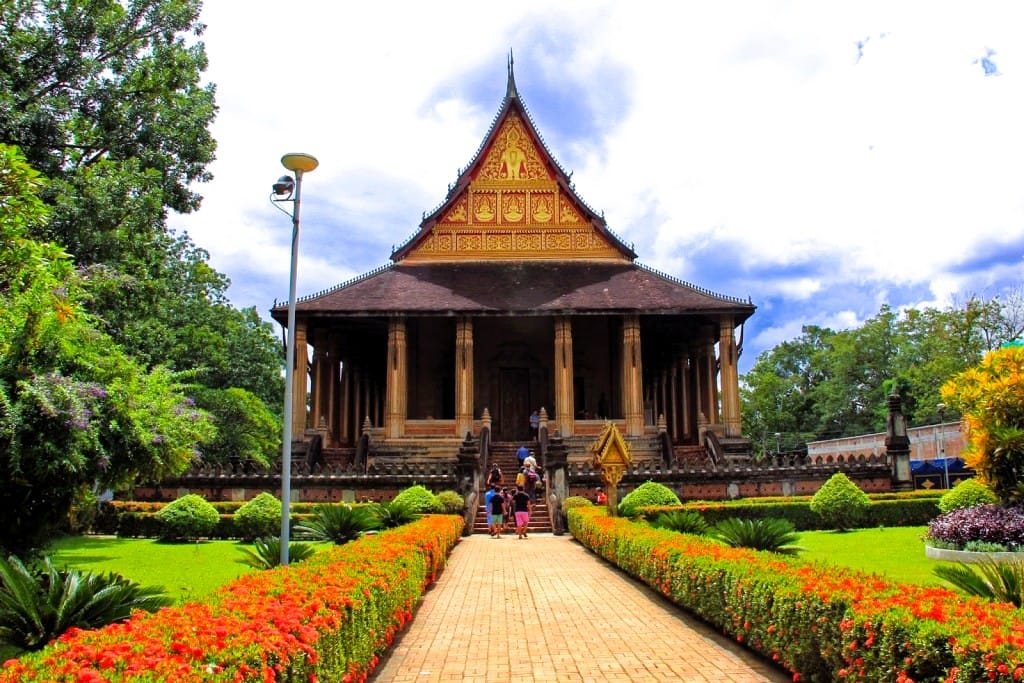
かつて王宮であった ワット・ホープラケオ 現在は宗教美術の博物館となっています。かつて安置されていた有名なエメラルド仏はバンコクに移されましたが、この寺院は今でも重要な文化遺産として残っています。
訪問する理由
- 素晴らしい建築: この寺院には精巧な彫刻、金箔の扉、美しく手入れされた庭園が特徴的です。
- 宗教的遺物内部には、仏教彫刻、工芸品、写本の素晴らしいコレクションが展示されています。
- 歴史的遺産1565年にセタティラート王によって建てられたこの寺院は、ラオスとその近隣諸国との文化交流を反映した豊かな歴史を持っています。
訪問者へのヒント
- 思いを巡らせるのに素敵な場所である庭園を散策しながら時間を過ごしましょう。
- 近くの大統領官邸への訪問と組み合わせて、ビエンチャンの歴史をより深く探ってみましょう。
4. ワット・オンテウ・マハウィハン:重厚な仏像の寺院
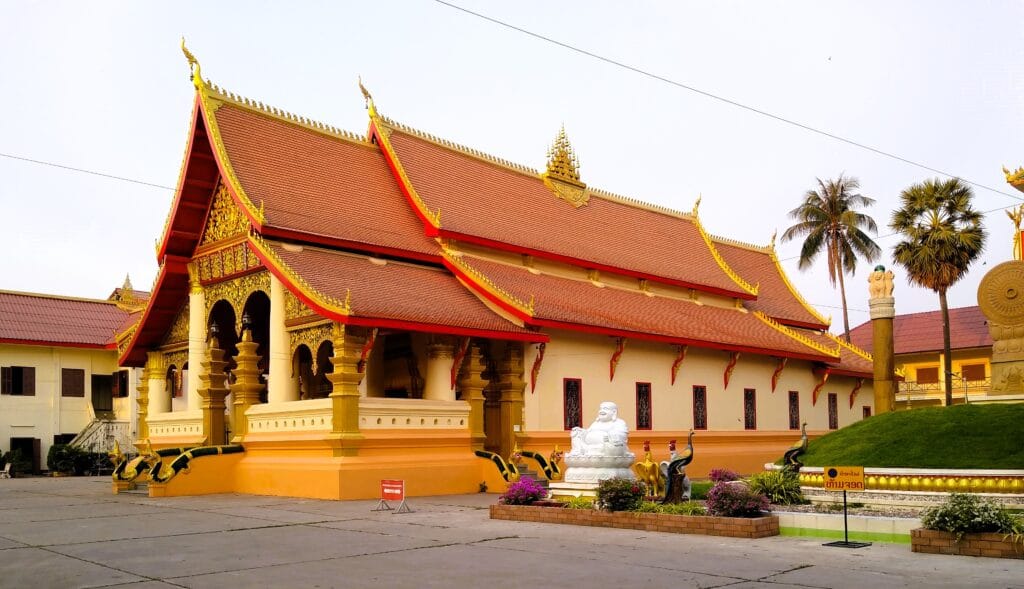
巨大なブロンズ仏像で知られる ワット・オンテウ・マハウィハン ビエンチャンで最も重要な寺院の一つです。仏教の教育と修行の中心地としても機能しています。
訪問する理由
- 堂々とした仏像この寺院の主な見どころは、寺院の名前の由来となった重厚な青銅の仏像です。
- 修道院学校: ワット・オンテウは仏教研究の中心地であり、僧侶たちが祈りや講義に取り組んでいる姿を見ることができます。
- 文化的洞察この寺院では、僧侶たちの日常生活やラオス社会における仏教の役割を垣間見ることができます。
訪問者へのヒント
- 朝の托鉢の儀式の時間に訪れて、伝統的な仏教の実践を見学しましょう。
- 僧侶たちが会話に応じてくれるなら、ぜひ話しかけてみてください。多くの僧侶たちは喜んで訪問者と英語で会話をしてくれます。
5. ワット・タート・カオ:白い仏塔
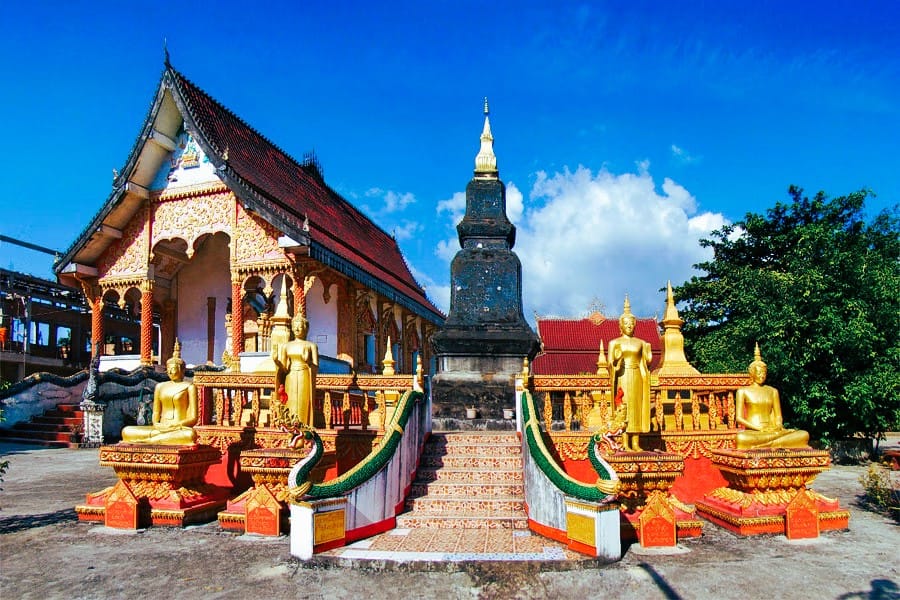
タート・ルアンほど有名ではありませんが、 ワット・タート・カオ (ホワイト ストゥーパ) は、より静かで親密な体験を提供する隠れた名所です。
訪問する理由
- 静かな環境木々に囲まれ、主要な観光ルートから離れた場所にあるワット・タート・カオは、静寂と瞑想を求める人々に最適です。
- 歴史的価値この仏塔はタート・ルアンと同じ時代に建てられたと考えられており、独特の魅力を持っています。
- 夕日の眺め白い仏塔は夕日とともに美しく輝き、絶好の写真撮影スポットとなります。
訪問者へのヒント
- 近くの寺院への旅行と組み合わせて、丸一日かけて探索しましょう。
- このエリアには設備が少ないため、水とスナックをご持参ください。
6. ワット・ソク・パ・ルアン:心と体の寺院
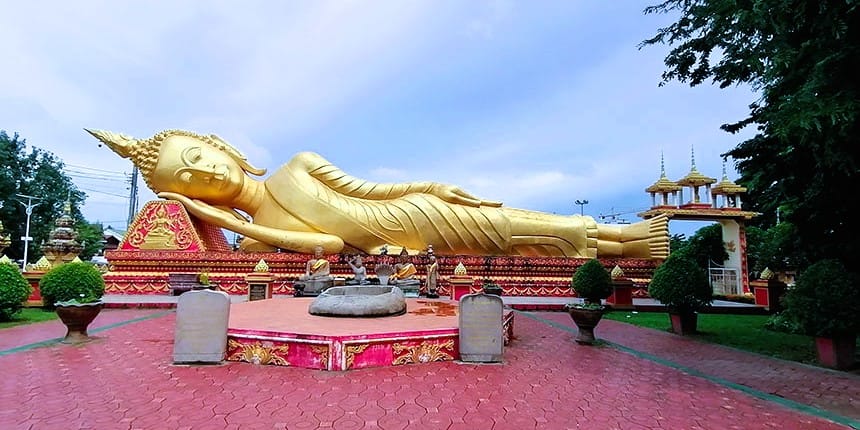
健康とスピリチュアリティに興味のある方 ワット・ソク・パ・ルアン ユニークな体験ができます。伝統的なハーブサウナと瞑想セッションで知られるこの寺院は、リラックスできる場所です。
訪問する理由
- ハーブサウナ治癒効果があると言われている伝統的なラオスのハーブスチームバスを体験してください。
- 瞑想クラス: この寺院では、僧侶による瞑想会が時々開催されます。
- 緑豊かな環境森林地帯に位置するワット・ソク・パ・ルアンは、都会の喧騒から離れて静かなひとときを過ごせる場所です。
訪問者へのヒント
- 瞑想セッションのスケジュールを事前に確認してください。
- サウナを利用する場合は、ゆったりとした着心地の良い服を着てください。
- 寺院の規則を尊重し、静かな態度を保ってください。
ビエンチャンの宗教的遺跡を探索するための実用的なヒント
- 控えめな服装を: 寺院や仏塔を訪れる際は、必ず肩と膝を覆ってください。
- 靴を脱いで: 寺院の建物に入る前に靴を脱ぐのが習慣です。
- 敬意を持って大声での会話は避け、仏像や神聖な物には絶対に触れないでください。
- 訪問を計画する: ほとんどの寺院は早朝から夕方遅くまで開いています。早めに到着すると混雑も少なくなり、涼しい気候になります。
- 小銭を持ってきてください多くの寺院には維持費を賄うための募金箱が設置されています。
ビエンチャンの宗教施設は単なる礼拝の場ではなく、ラオスの魂を垣間見る窓です。タート・ルアンの壮麗さからワット・ソク・パ・ルアンの静けさまで、それぞれの施設は歴史、精神性、美しさが融合したユニークな体験を提供します。
歴史愛好家、スピリチュアルな探求者、あるいは単に息を呑むような景色を求める旅行者であっても、ビエンチャンの仏塔や寺院は忘れられない印象を残すこと間違いなしです。荷物をまとめてカメラを持って、ラオスの文化遺産の中心を巡る旅に出発しましょう。



